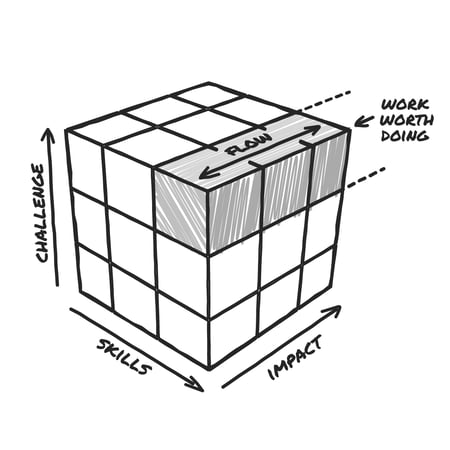Doing Work that Matters
The key to productivity is doing work that matters, work that creates value. This applies to everything: countries, communities, companies, departments, teams, and individuals. It seems obvious, but I suspect the vast majority of the readers of this piece would agree that a significant percentage of time is dedicated to doing work that doesn’t matter.
When we focus our mental, emotional, and physical energy on a narrow set of activities and goals, we significantly enhance not only our ability to create value but also our ability to allocate time for recovery.
There are lots of reasons we’re unproductive, but probably the biggest is ignorance. Ignorance comes in many forms. Sometimes we aren’t sure what to do, why we’ve been asked to do something, how to do it (something we’re often afraid to admit), when or where to do it, or who to involve.
The next biggest reason is disagreement. We disagree with some part of the who, what, when, where, why, or how.
And the final reason is lack of trust. We don’t trust some or many parts of our who, what, when, where, why, or how.
If you’re a leader, especially a company leader, the biggest parts of your job are minimizing ignorance and disagreement and building high-trust relationships with all your Ideal Stakeholders.
These three reasons for being unproductive need to be addressed. That may seem obvious, but I promise you: most people avoid doing so. That’s the normal state of being for most organizations.
This condition, this state of being, is probably the number one reason thousands and thousands of entrepreneurs need a Business Operating System (BOS) like EOS®.
A reasonably well-developed BOS insists that the entrepreneur and all of their direct reports attack the normal amounts of ignorance, disagreement, and trust issues that tend to envelop a business as it evolves through the normal, and completely unavoidable, Stages of Development.
In my experience, most leaders sooner or later find themselves asking this question: “How much of our collective time is dedicated to doing work that really creates value, work that genuinely matters?” Asking the question is easier than honestly answering it. If they’re radically honest with themselves, they’ll conclude that 20–40% of their efforts are wasted.
I often cite this variation of a Doc Rivers quote:
Average leaders want to be left alone.
Good leaders want to be coached.
Great leaders want to be told the truth.
Asking to know the truth is easier than answering it honestly. Admitting that you haven’t invested the time to get super clear on what matters — aka, putting you and the rest of your  colleagues into the Winner’s Corner — is hard but essential if you want to build a great company — a business that someone would love to either take over leading for you or buy from you.
colleagues into the Winner’s Corner — is hard but essential if you want to build a great company — a business that someone would love to either take over leading for you or buy from you.
Too many people just keep doing what they’ve been doing and tell themselves that they don’t need to invest the time and energy required to fully upgrade their BOS. They just need another hire or one more productivity hack or one more client, and they’ll be back to making an acceptable amount of progress.
The likely and harsh truth is that they’re just staying busy so they can avoid facing the truth about their company’s levels of ignorance, disagreement, and trust.
If you’re worth following, you’re smart enough to know that being busy and being productive are not the same thing. Running around in circles is busy. Making satisfactory progress toward your destination is productive. It's easy to be busy. It takes a pause and reflection and then discipline to truly and collectively be productive.
Way too many organizations lean into efficiency because it’s easier to measure. Great leaders know where efficiency matters and where effectiveness matters. The real "work" of productivity is less about improving efficiency and more about improving effectiveness.
Building a great company isn’t about doing more; it's about focusing everyone’s energy on doing work that truly matters.
Great organizations are consistently in a flow state, collectively doing work that not only matters but is appropriately challenging.
Is yours?
Subscribe to my Founder's Framework newsletter to discover how successful founders leverage proven frameworks to build thriving companies they’ll love forever.





